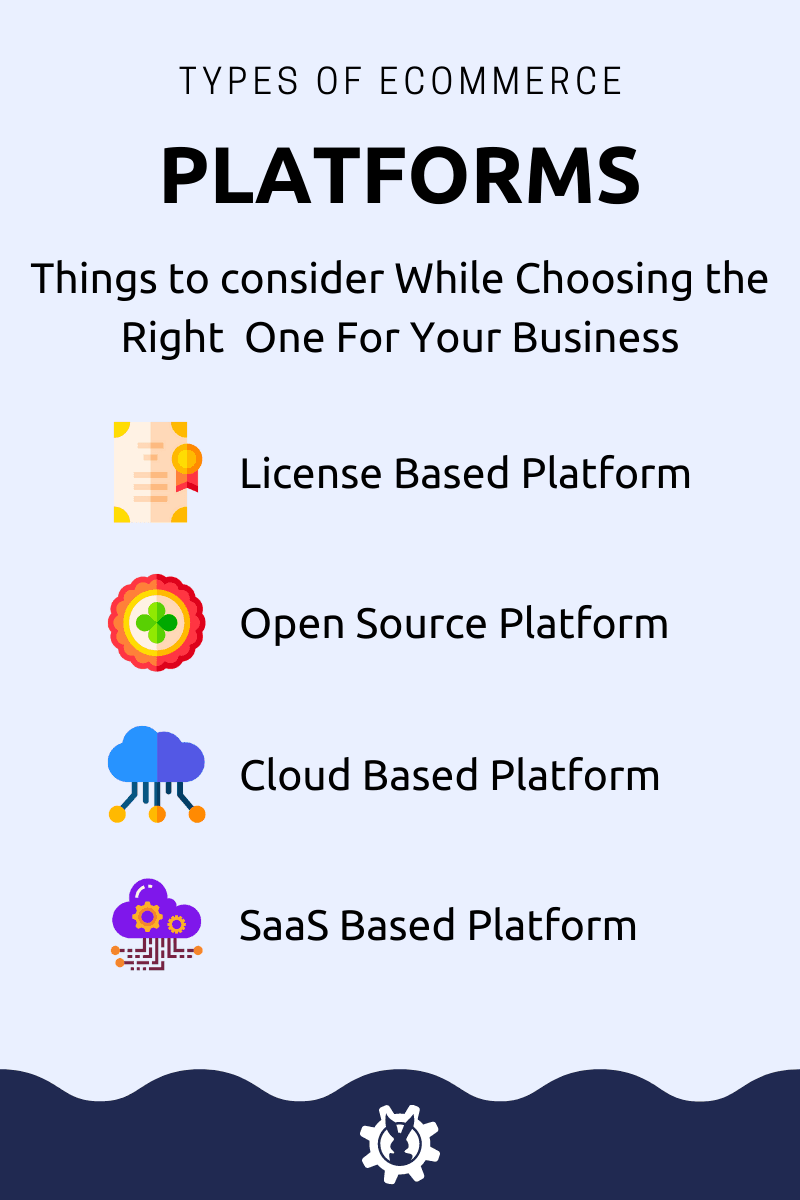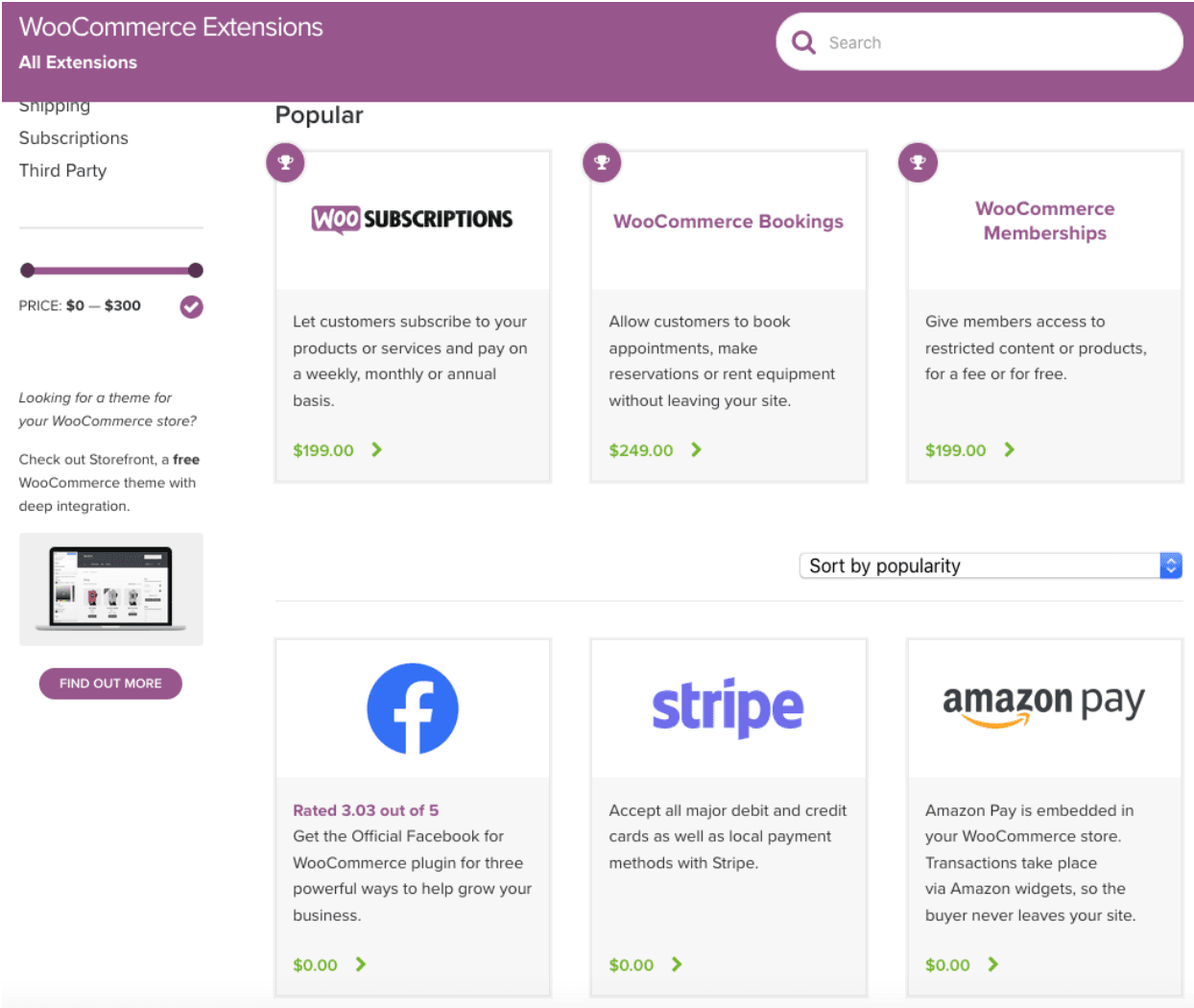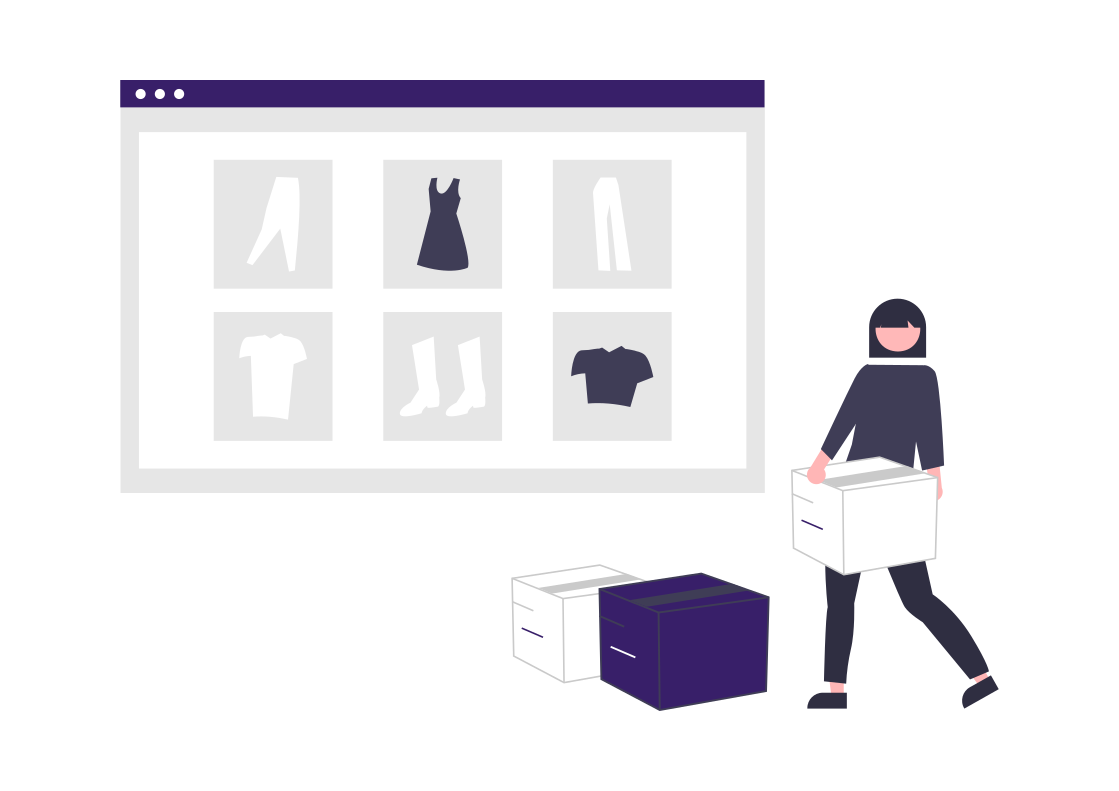Every day, the eCommerce industry is changing and becoming more complex. Developing new global markets, multiple local restrictions, and ever-changing consumer preferences facilitate this process. Therefore, a business needs a professional, reliable eCommerce solution that helps develop the company globally and offers an optimized payment solution.
In this article, you can find out the different types of eCommerce platforms, how much it costs to build and maintain your eCommerce platform, and things to know while migrating to another platform.
Why is choosing an eCommerce platform matters for your business?
Whether you own a small and local retail store, target mass-market product sales, or self-market on a smaller scale, eCommerce offers you an excellent opportunity to establish a digital platform and expand your network. Below are some benefits of eCommerce that can demonstrate why eCommerce is critical to the growth and success of your retail business. So why does your business needs an eCommerce platform?
- It is a simple and effective way to interact with the audience and get feedback on the product.
- It can help you with consumption statistics, success metrics, and economic performance charts, so you can know if your sales are profitable.
- It answers the questions about your products' prices, availability, and quality.
- Free platforms don’t require any cost initially, only if you can add specific features.
- It builds trust. If the customer sees the perfect interface with great functionality, it’s more chance they will trust you and come back.
If you think that your business needs an eCommerce platform but don’t know where to start, you can find different options of eCommerce solutions.
What are the different types of eCommerce platforms?
A big part of choosing a platform and building your eСommerce site comes down to endless options you need to make. One of the first choices is how to host your site. This decision will affect your staff, your resources, the amount of control you have over your servers, the necessary maintenance, the performance of your site, and many more.
When we speak of the different eCommerce platforms, we usually have the following types:
- Building your platform requires a team of developers. This option is not so common today, as there is a great variety of commercial eCommerce platforms with lots of functions and offers. But if your business has unique needs and goals that can’t be fulfilled with the help of popular solutions, this option is for you.
- Traditional platforms usually require the purchase of a license. You can build your solution on top of the platform and then install it into the cloud. The traditional platforms include Oracle Commerce, Hybris, IBM Digital Commerce.
- Cloud-hosted eCommerce is the cloud or PaaS (Platform as a Service) model. These are traditional and open-source platforms that outsource the hosting systems. We can name Magento 2, WooCommerce, OpenCart, PrestaShop as examples of cloud-hosted eCommerce platforms.
- Open source eСommerce platforms offer businesses a customizable option to launch an online store with active support communities, how-to resources, and third-party directories. An example of such an eCommerce type of platform is Magento.
- SaaS eCommerce stands for Software as a Service. In this case, both software and hosting are included in the same monthly fee and are maintained by the same company. The examples of SaaS eCommerce platforms are BigCommerce, Shopify, Salesforce Commerce Cloud, 3dcart.
- Hybrid eCommerce solutions. While some companies operate separate platforms for each market, a hybrid solution combines the best approaches and offers tremendous benefits. You can serve different types of markets by reusing content and data across

There is often confusion about cloud hosting and SaaS. The difference between them is that cloud-hosting platforms are self-hosted while the SaaS platforms run on the SaaS provider’s hosted servers. These platforms automatically make updates for you, so you can always have the latest version without worrying about maintenance.
In terms of the setup process, cloud-hosted solutions can be expensive and time-consuming, while SaaS eCommerce platforms are a good option for those who want to deliver the management tasks of their store.
The benefits of open-source platforms are their mobility, flexibility, broad community support, and the basic functionality required to launch a store. However, as your business develops, you may need additional functionality over time. The open-source software is open for download and modification by anyone. It can be a benefit and a drawback when it comes to attackers looking for vulnerabilities to exploit. eCommerce sites are valuable targets for hackers who always look for financial data, making security issues significant. Your open-source platform may provide fixes for well-known problems, but your team should know what updates to install.
How much does it cost to build, maintain, and update your eCommerce platform?
Regardless of the website type, there are two main cost categories:
- Design and Functionality - this is what people see when they visit your site, interact with your content, and make purchases. For example, the layout of your site will affect the amount of time your users spend and your conversion rate.
- Infrastructure - this is a necessary investment in designing your eCommerce store that includes things your audience doesn't necessarily notice. It includes buying a domain, setting up hosting, and Search Engine Optimization.
Your success starts long before your site goes live. It begins when you create a plan for building your website with a detailed list of expenses and a budget.
From the beginning you should consider the cost for:
- Domain name
You can't have a website without a domain name. It is the permanent address of your online store, so it is crucial to make the right choice. You can expect to pay $10 to $20 for a domain name.
- Hosting
You need to make your site accessible to others. As mentioned above, you have two main options: self-host your eCommerce site or use an eCommerce platform that includes hosting (SaaS). Prices vary and depend on company and plan, but you must budget between $5 and $20 per month.
- Individual design
Custom design is the best option if you're looking for a unique solution. It's built specifically for your business, industry, store, and requirements, so the result should meet your needs. You can customize your design, hire a professional or choose an individual design from scratch. Cost varies depending on the size and scope of the project, but expect to spend a minimum of $1,500 to $5,000. And if you're more interested in enterprise-grade design with countless internal pages, your expenses can go up from $10,000 to $50,000.
- Web development
Many popular platforms provide ready-made solutions. With their help, you don't need any additional development, but you might want to make your eCommerce platform more personalized. If you are looking to hire a web developer or web development company, be sure to find someone with experience with eCommerce websites. Prices vary based on experience, platform, project scope, and location. Expect to pay somewhere between $15 to $30 per hour on the low end. But for more complex projects like custom coding, the prices start from $150.
- Customization Expert
For a basic setup on Shopify, the budget is $500 to $1,000. If you need a more complex solution, you will likely need $1,000 + to get everything you want. If you're going to use a different platform or don’t want to use Shopify, you can hire an independent customization expert through Upwork or another freelance platform. In this case, you can find someone for a similar cost as a developer, with a starting price of $15/hour.
- Marketing and SEO
The marketing strategy includes content, blogs, social media, email marketing, Pay Per Click (PPC), SEO. The marketing price depends on lots of factors. You could spend significant sums of money hiring a popular social media agency to help you with marketing, or you can do everything by yourself, from taking photos to creating video content and managing your profiles. It’s up to you to define your budget for marketing.
- Payment processing
The payment processing depends a lot on the platform you choose. When choosing an eCommerce provider, consider your payment processing options. In terms of budgeting, you can expect an average of 2.9% + $0.30 per transaction.
- Apps and plugins
Most popular platforms have a library to find the perfect solution for almost any problem. WooCommerce is a leader in thousands of extensions and plugins available for WordPress. In general - except for free extensions - you can expect to pay between $10 and $300 depending on the number of plugins.

You can find an ultimate guide on how to start an eCommerce business, things to consider before, the best eCommerce platforms, and how much does it cost to start an online retail business in 2022 in our blog.
Things to Consider When Choosing Your eCommerce Platform
There are several approaches and platforms for creating an eÇommerce business. If you work in online commerce, you probably know Shopify, Bigcommerce, Magento, CS-Cart, and up to 10 more popular platforms for building an online store.
However, choosing an eCommerce platform based on its popularity is not a great idea. The best eCommerce platform is the one that meets your business requirements. These are the aspects you need to consider with special attention:
1. Budget
It is crucial, especially if you are just starting and have a limited budget. eCommerce platform costs can range from free versions to thousands of dollars depending on many factors, including the number of features and the scale of your business. Most of the platforms offer a free trial, so you can experience the platform's benefits before deciding. Make sure the price covers all the features you need like hosting, add-ons, etc.
2. Vendor experience
The vendor you choose should be among the top professionals in your eCommerce industry. Make sure it meets the needs and all your business requirements. Check their case studies, reviews, clients' testimonials to see their expertise.
3. Security
It is an important aspect, as you will have to perform financial transitions on your digital platform. Research the security measures and necessary security protocols of your eCommerce providers.
4. Room for growth
Although your resources can be limited, and you start with fewer options initially, you may need to add additional features and solutions with the business growth. That’s why you should choose a platform that will allow your business to grow in the future without being overly complex or costly.
5. Type of customer service available
Make sure the vendor will provide you with the necessary support when needed. They have to offer 24-hour support and have different channels of communication.
Must-have features when choosing an eCommerce platform
eCommerce platforms combine different sets of features aiming to meet the needs of each business. However, some plans offer fewer features and charge more, while others may give away all features for less. But to choose the right eCommerce platform, it is essential to know the must-have features every eCommerce platform should have. They include:
- The robust catalog that represents your product
- Flexible pricing and support for multiple currencies
- Website personalization based on your customer’s preferences
- Flexible zone-based shipping
- eCommerce analytics that includes all metrics and KPIs
- Google Merchant integration with relevant results
- Facebook integration that automatically syncs your products
- Customer review system with customer’s ratings and reviews
- An automatic tax of different countries and account calculation
- Multiple payment gateways for different payment methods
- Single customer view in every channel
- Headless commerce
The main requirement for an eCommerce platform is flexibility. If the platform is flexible, you can add or change any functionality. A business must respond quickly to any change - updating product categories, switching to new payment models, upgrading functionality, or entering new markets.
Reason to migrate to a different eCommerce platform
The migration process is a serious decision caused by difficulties in managing the business due to its growth or as a result of unsuccessful attempts to make the system work differently. The entire transition process is usually becoming one of the most critical tasks for the company.
Any platforms change involves a significant investment of time and financial resources and organizational and structural changes. At the level of decision-makers, the success or failure of such a project can be life-changing.
The main reasons for migration to a new eCommerce platform are:
1. Outdated platform or lack of functionality
Startups or small businesses usually start with free or low-cost software to create an online store with basic functionality. However, these beginner solutions can easily hold you back when the company expands. Lack of advanced features can slow down business processes, team productivity, and more.
2. Ease of use
If you spend hours making changes, updating information, adding products or services, processing orders, etc., it is better to look for a different shopping cart. Think about your team and make sure the learning process of new software is as flawless as possible.
3. Economic efficiency
Since every business has a budget, it's vital to assess your expenditures and the possibility of implementing the new future eCommerce solution. The final price of any eCommerce store includes subscriptions, hosting, security fees, and the cost of maintaining a shopping cart, and more.
4. Effective reporting tools
eCommerce analytics plays an essential role in using standard and custom reports based on current information. In addition, it allows you to analyze and define actions to improve your business processes further. You may think that your online store is doing great and your team members are working efficiently, but reports may show the opposite results.
5. Variety of third-party integrations
Some shopping carts may be missing essential features, so that you may need third-party apps. There is a wide range of integration extensions in the eCommerce market. They can help you simplify your business processes and enhance the functionality of your online store.
Conclusion: How to know which eCommerce platform is right for my business in 2022?
eCommerce platforms often have similar features that enable you to build a successful online store. Before choosing a platform, you need to assess the needs of your business, the opportunities each provider offers you, and your vision of your potential online store, its size, scalability, and target audience.
Make SEO research, marketing decisions, user experience, scalability, and customization. By identifying what is vital to your business, you can find the platform that suits your requirements and budget.
At RabbitPeepers, we can customize your eCommerce platform depending on the size and scale of your business. The RabbitPeepers team can support you with a complex solution to migrate from a tightly coupled monolithic eCommerce platform to a headless system. We keep your backend business flows (e.g., Magento, WooCommerce), enable and adjust REST APIs, build modern and fancy frontend applications and connect them.
Feel interested? Let's talk and see how we can grow your business together and attract your customers.


